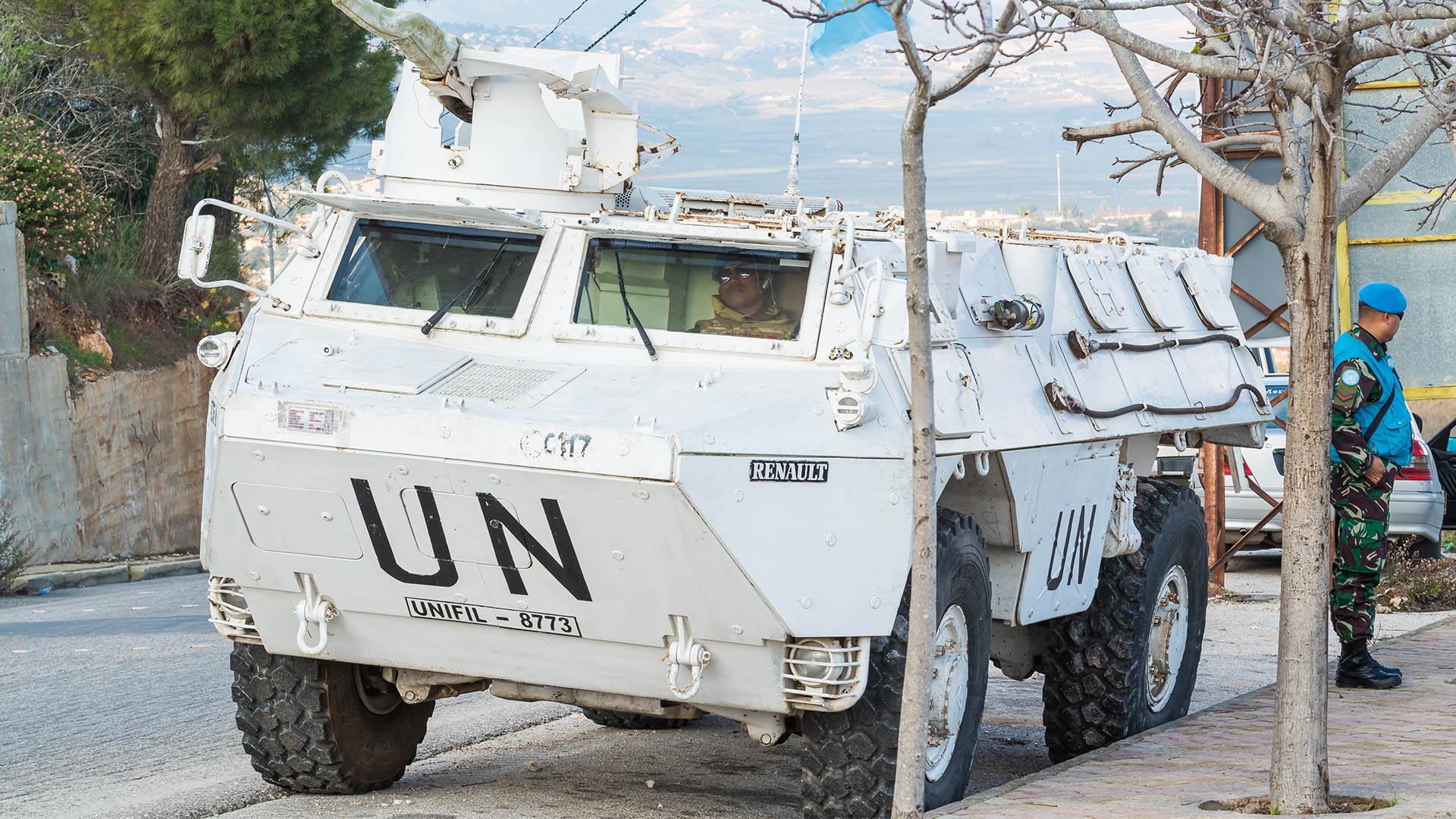There is nothing ‘interim’ about the UN’s peacekeeping force in Lebanon which has been in the country since 1978. The fact that the United Nations Interim Force in southern Lebanon still needs to renew its mandate every year since the late 70s is almost comic for a force that has been in the same place for about 40 years. But there are ostensibly good reasons for this ambiguity.
UNIFIL’s mandate may be black and white on paper, but a close look at its wording leaves room for a greyscale of interpretations. The United Nations Security Council unanimously voted in August to renew the peacekeeping mission’s mandate for another year. The process is usually conducted yearly to discuss and agree on the role of UNIFIL which was established in Lebanon’s south to monitor the withdrawal of the Israeli army and restore the Lebanese Armed Forces (LAF) presence in the area.
Behind closed doors, however, this year’s unanimity covered up increasingly tense discussions on the interpretation of the peacekeeping mission’s mandate. Negotiations proved difficult in New York, as UN Security Council member states went back and forth to agree on the final stages of the draft resolution – also known as “the blue draft” in UN terminology. The negotiation process tried (again) to get member states with diverging political stances to all agree on paper. For two weeks, diplomats bickered over the language used in the blue draft. Each word mattered. In the end, the only way to reach a middle ground was to include ambiguous and compromised language in the resolution, leaving it open to various interpretations. Yet, this ambiguity has potentially grave consequences on the ground.
Room for interpretation
While it is one thing to have the mandate on paper in New York, it’s another to implement it in southern Lebanon. Like every year, UNIFIL’s staff was handed the mandate as a “fait accompli” and instructed to fulfil it. Back in Lebanon, the mission’s political analysts proceeded by going through the mandate word by word to determine what the latest ambiguous and compromised language entailed for them.
As seen this summer, sensitive wordings can spark clashes of rhetoric. This time, the controversy concerned UNIFIL’s freedom of movement. Hezbollah officials quickly condemned the latest resolution, saying it turned the peacekeeping forces into “occupation forces”. Lebanon’s Ministry of Foreign Affairs and Emigrants further objected to the resolution’s new wording, noting that it contained “a text that does not conform with what was mentioned in the framework agreement signed by Lebanon with the UN”.
UNIFIL rushed to organise meetings with embassies in Beirut and political parties across the country to stress its interpretation of the mandate and clear up any misunderstandings.
“In a very politicised and polarised media environment, it’s important to ensure that our information needs to be carefully checked/verified in order to provide credible and transparent messages to our target audience,” explained Andrea Tenenti, UNIFIL’s official spokesperson in an email to Badil.
When soldiers follow political poets
While diplomats are usually well-versed in the world of ambiguously written political agreements, soldiers are often the ones who must translate them in the field. Little is known about how military units deployed in peacekeeping missions interpret ambiguous mandates on the ground. However, recent research in Mali identified various ways peacekeepers interpret their assignments and interact with fellow contingents.
This so-called “meaning-making” by military troops in peacekeeping missions is particularly concerning for Lebanon’s context. UNIFIL’s troops consist of 9,923 peacekeepers from 48 troop-contributing countries who come from different military cultures and previous experiences. Despite set protocols, each contingent naturally has its own interpretations – however slight – and reactions to security incidents. In southern Lebanon, peacekeepers face complex situations whereby encounters or misunderstandings with the local population sometimes escalate violently.
UNIFIL’s latest report to the UN Security Council outlines numerous incidents during its patrols in the previous year. The peacekeeping mission relies on this periodic reporting to ensure the Security Council remains aware of the situation on the ground.
However, Badil spoke with former high-ranking UNIFIL staff members, who could not speak on the record due to confidentiality agreements with the agency, and said that reported incidents were sometimes downplayed to keep the delicate local and regional political balance and avoid any potential escalations. One of the sources further explained: “You need to understand that no UNIFIL leader has an interest in starting a war.”
Long-standing vagueness
The quagmire of intentional ambiguity goes back to 2006 when, following the 33-day war in Lebanon between Israel and Hezbollah, UNIFIL’s mandate was significantly bolstered. The Security Council passed Resolution 1701 that, among others, included a divisive provision: “… that there will be no weapons without the consent of the Government of Lebanon”.
However, UNIFIL’s exact role in this disarmament – which essentially refers to Hezbollah’s weapons – continues to be a contentious point among some member states that disregard Hezbollah’s longstanding popularity in local communities and its participation in the Lebanese parliament.
“In these resolutions, which can be interpreted, there is no specific mention of the responsibility of UNIFIL in the disarmament of the militias but it is alluded to,” an international relations and peacekeeping expert told Badil.
“The difference with other missions is that UNIFIL is composed in its majority of soldiers and especially that the government of Lebanon would immediately disavow the UN if [UNIFIL engaged in disarmament] since the parties of the Free Patriotic Movement and Shiite alliance have the majority,” said the expert who preferred to remain anonymous.
Why words matter
In the long term, there is no silver bullet. Only a political solution can bring an end to the conflict. For now, UNIFIL is a useful tool for geopolitical forces and will continue to be used that way. While not perfect, the peacekeeping force seems to be the best option – literally a human shield, albeit armed and wearing blue helmets – until peace finds a way.
Dr. Susann Kassem, who is a Leverhulme Early Career Fellow at the University of Oxford and currently working on a book about UNIFIL, recently noted in one of her research articles: “Without a political solution for the wider Arab-Israeli conflict, any peacekeeping mission will be able only to survive but not to solve the root issue of the conflict, namely the Israeli occupation and the Palestinian refugee question”.
In the short term, however, the UN Security Council would do well to ensure that the mandate is clear to all relevant political and non-political actors to avoid misunderstandings. The mandate also could be adapted to southern Lebanon’s context to avoid raising expectations that peacekeepers cannot keep – particularly regarding Hezbollah’s arms.
It only takes one misunderstanding on the ground for the situation to escalate violently, with potentially devastating regional consequences. Peacekeeping missions shouldn’t have to read between the lines to keep the peace.



